Help us make a difference in Agbogbloshie and other polluted places. Donate now to support the cleanup of polluted communities worldwide.

“Kona Ne Bad” or “Burning Is Bad” – that was the message splashed across tee-shirts and posters, and shouted out through megaphones by our team as they did a walk-through of the Agbogbloshie e-waste dumpsite in Ghana last month (Aug 2016).
The Pure Earth team, represented by members of Green Advocacy Ghana (GreenAd) and the Greater Accra Scrap Dealers Association (GASDA), spent the day walking around and talking to local e-waste dealers and recyclers about the dangers of burning e-waste.
They also distributed over 100 posters and flyers printed in English, Hausa and Dagbani.
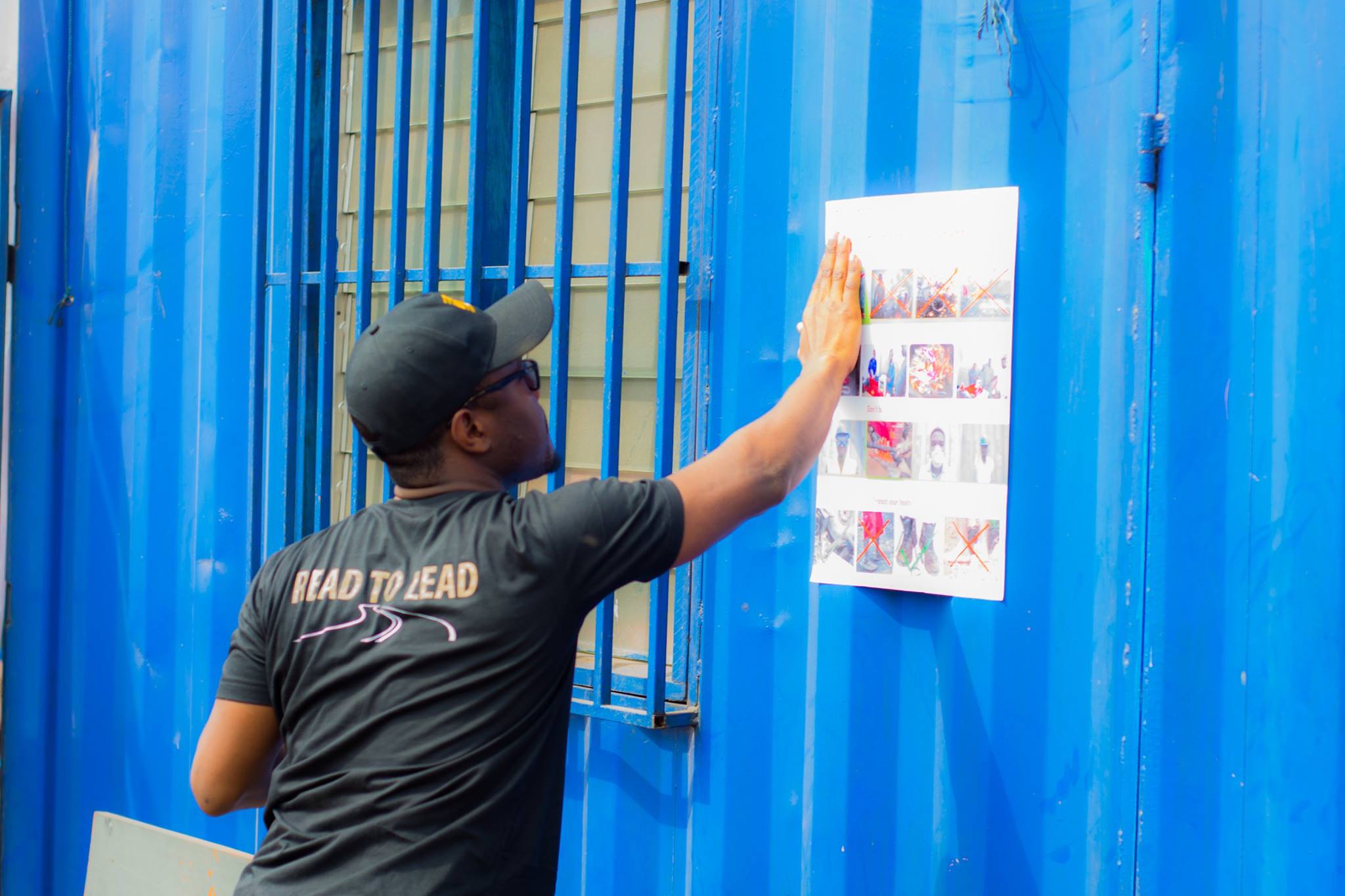
This member of our team turned himself into a walking, talking billboard to get the message out.
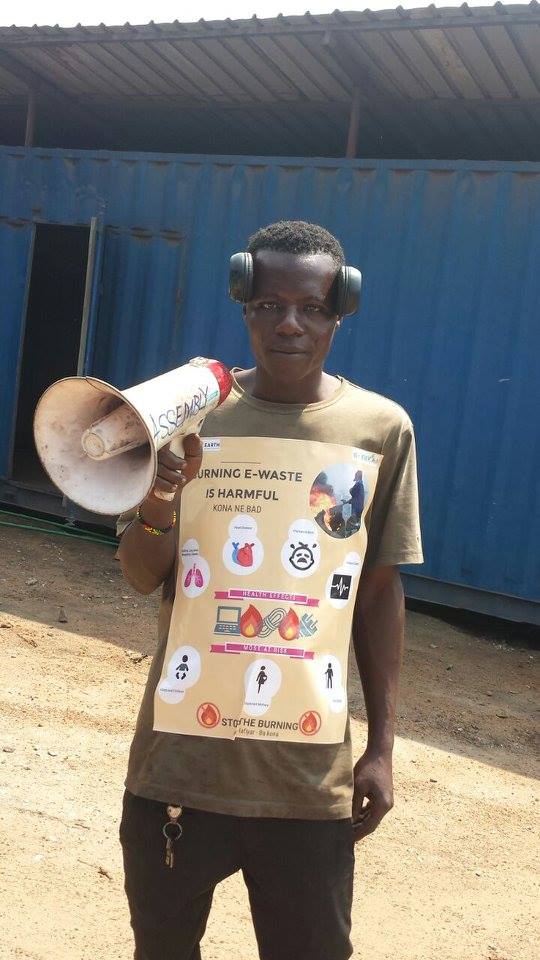

Small crowds gathered wherever our team went. They were eager to learn how their jobs can be made safer. Over the years, media attention on Agbogbloshie has raised awareness about the dangers of this way of life.
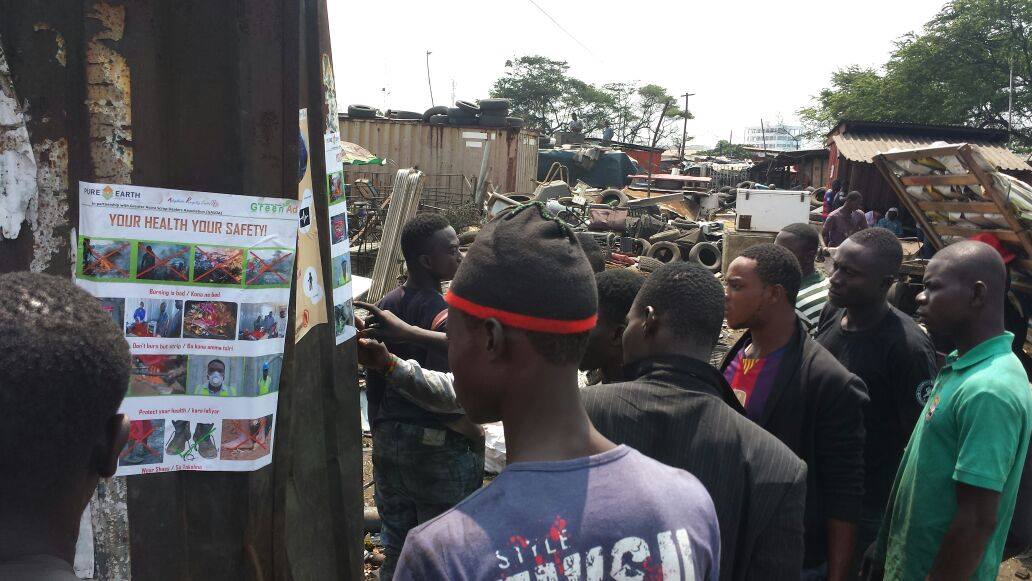
But with few options, many recyclers continue to scavenge and burn e-waste in order to extract the copper, aluminum and other materials found in discarded computers, mobile phones, refrigerators, televisions and other electronics and appliances.
This burning of e-waste releases dangerous amounts of toxic chemicals from the plastics and other electronic components that contaminate the environment and poison the community.
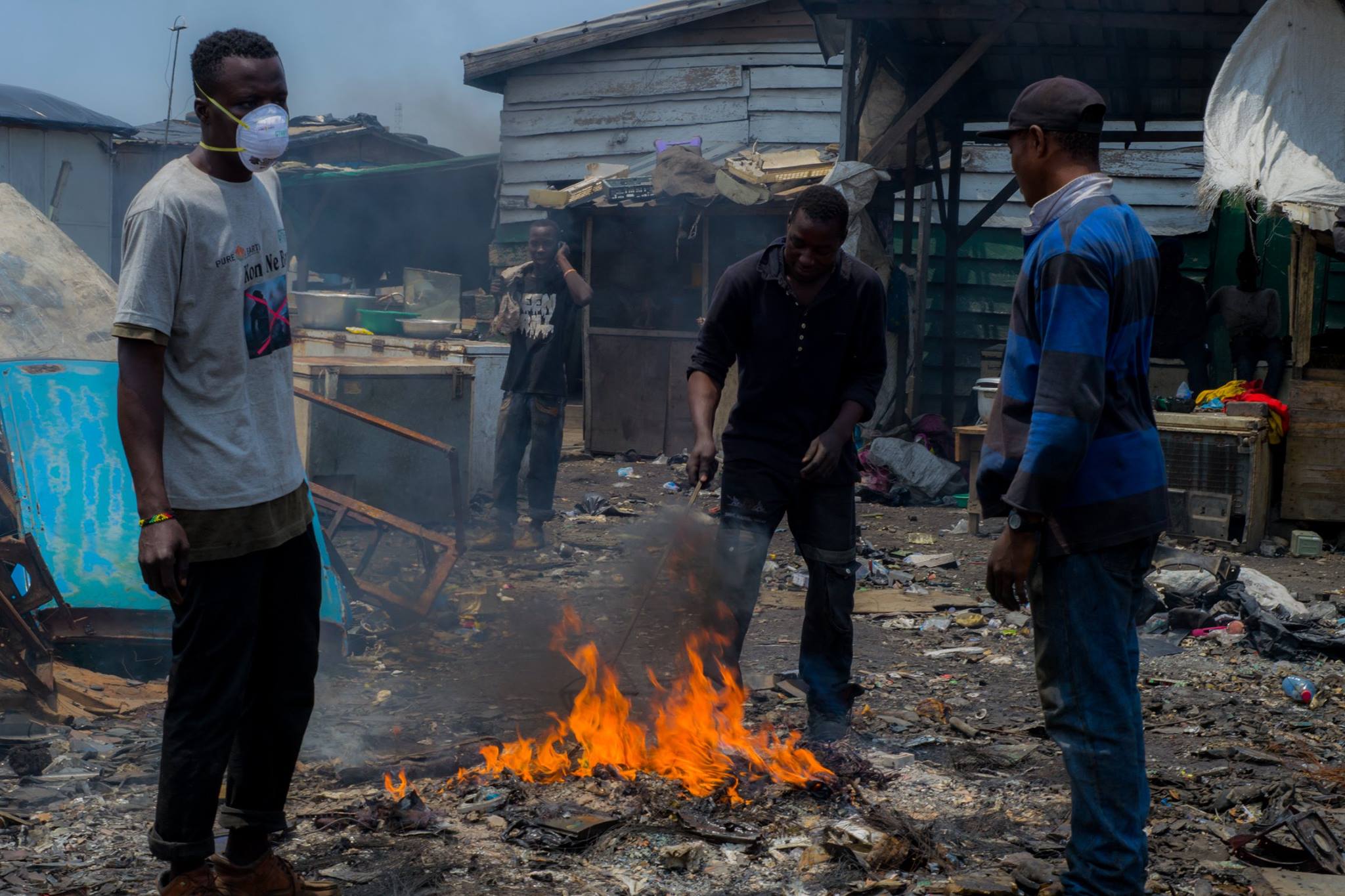
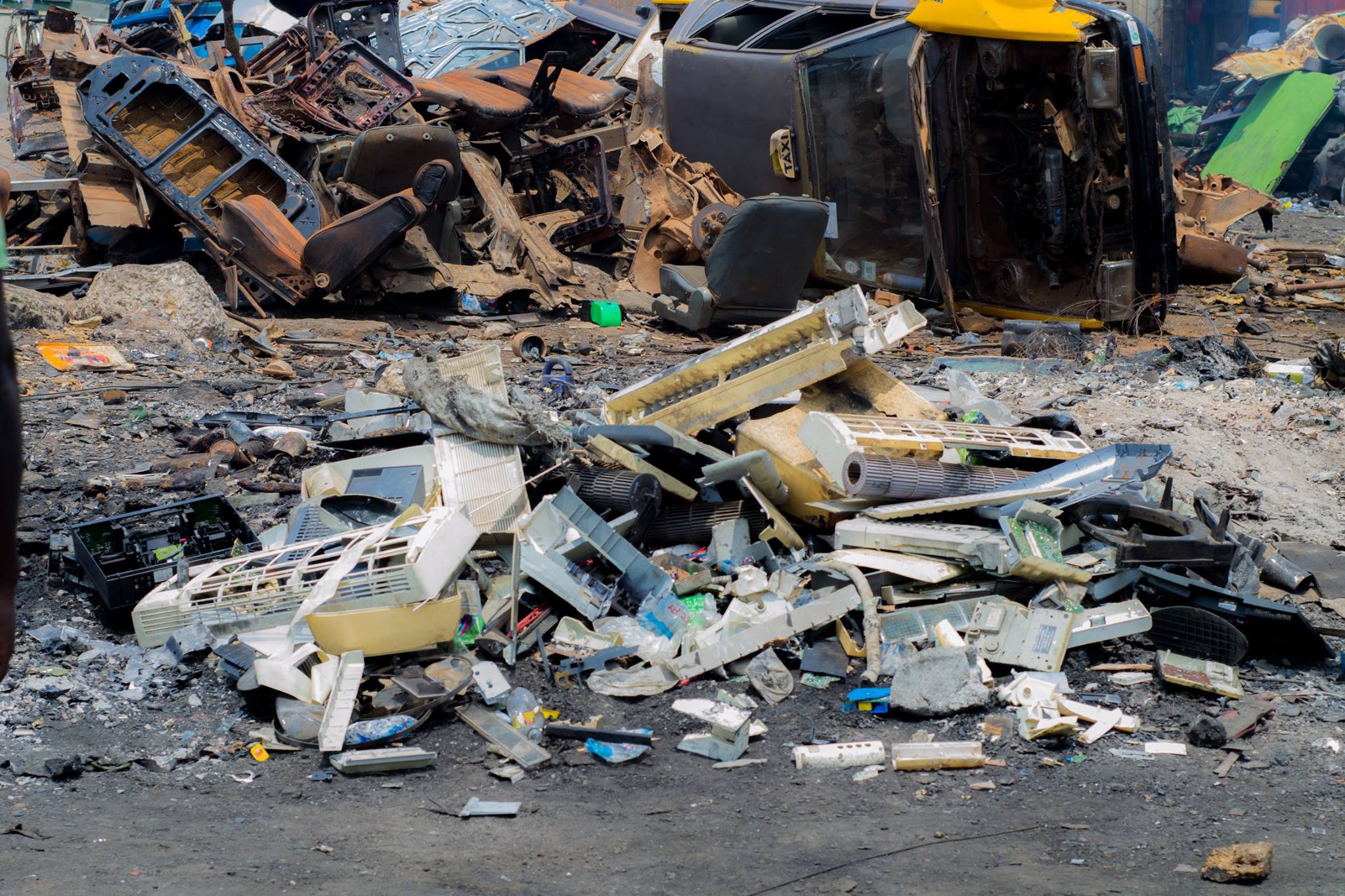
Working towards a solution to this problem, Pure Earth set up the Agbogbloshie e-waste recycling center in 2014, working in partnership with GreenAd and GASDA. The center is part of a pilot project aimed at reducing the health threat to the community caused by the burning of e-waste, without threatening the livelihoods of the recyclers.
Since its opening, the e-waste recycling center has provided workers with an alternative. Instead of burning e-waste, they can use the machines installed at the recycling center to strip, pull apart and shred the plastic coating cables to extract the valuable wires within.
The day after the walk-through, over 200 people, including many local scrap dealers and recyclers, showed up at the recycling center to see how the machines can help them recycle wires safely.
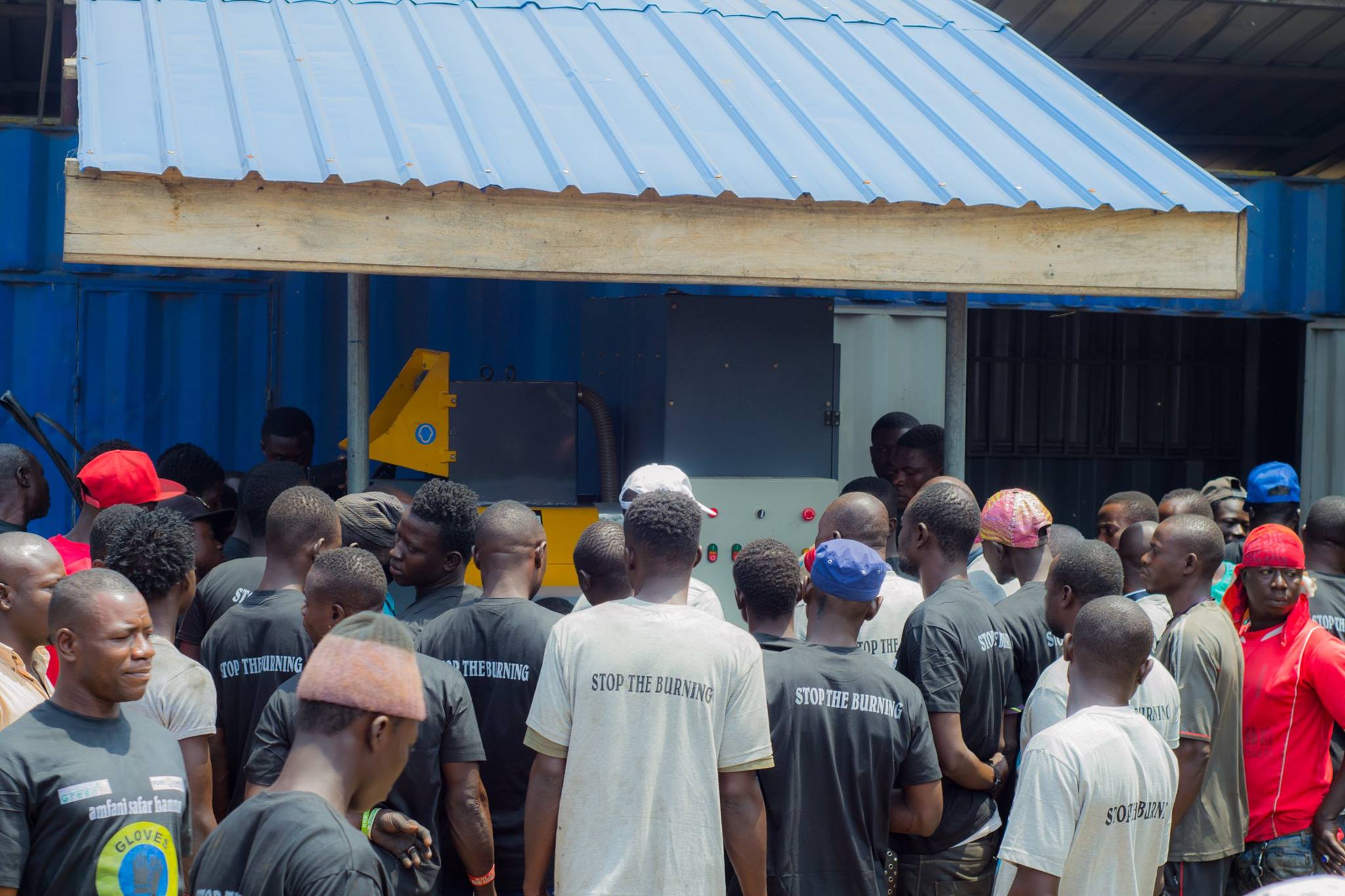
The team demonstrated the center’s newest machine (pictured above, in the background), which can extract smaller wires from cables.
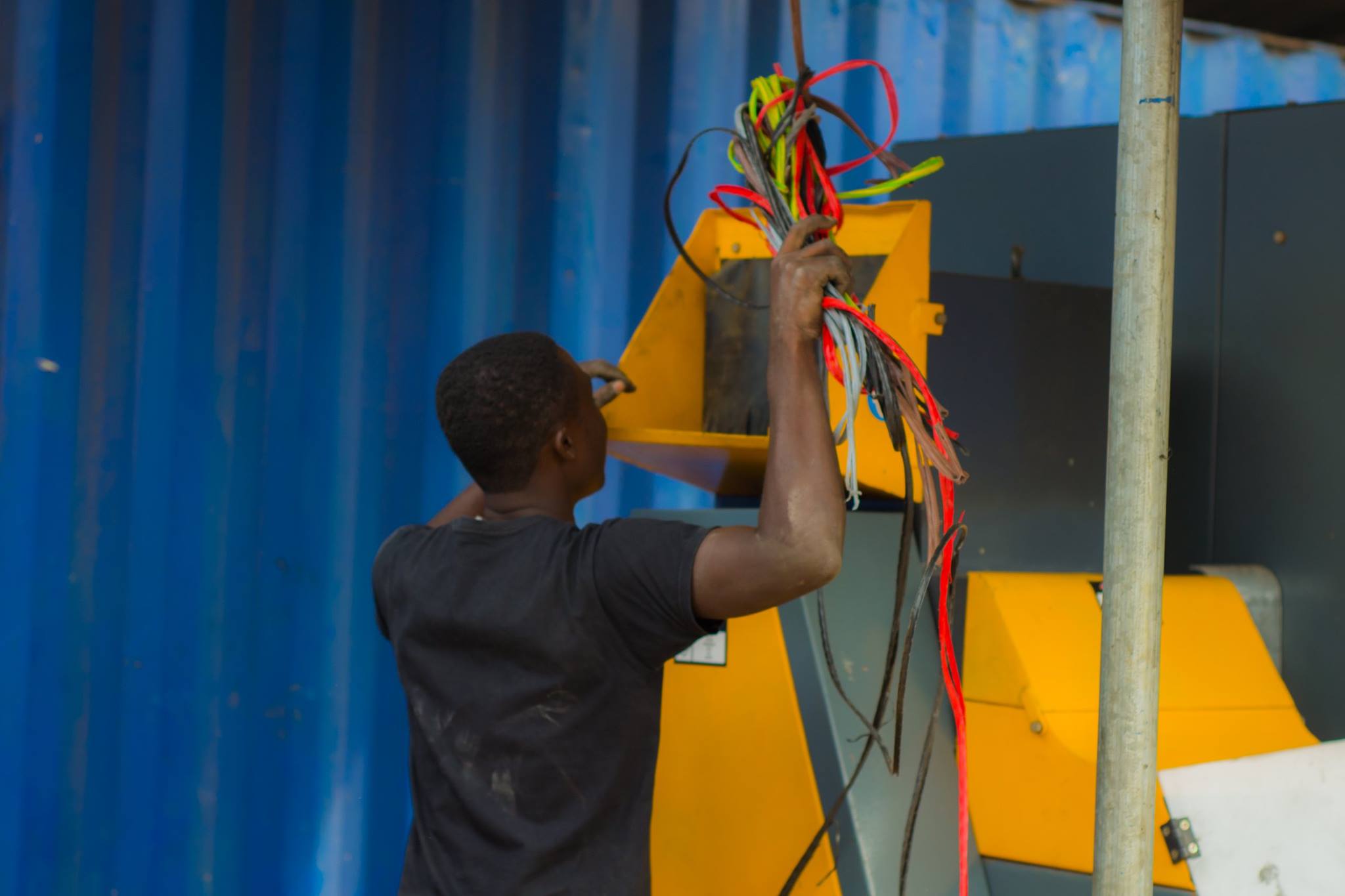
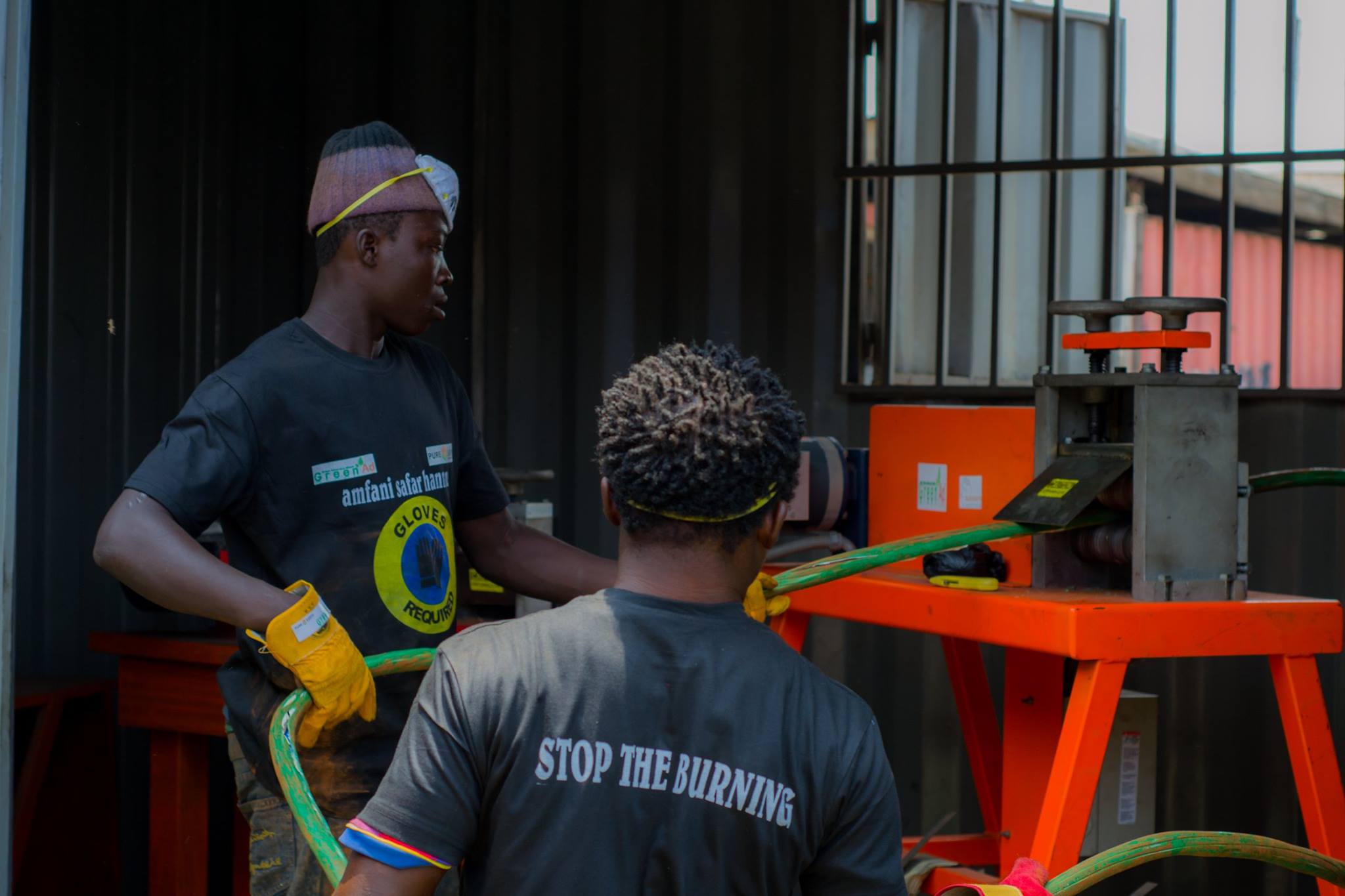
It joins two other machines already in operation at the center, which can strip larger cables, seen below.
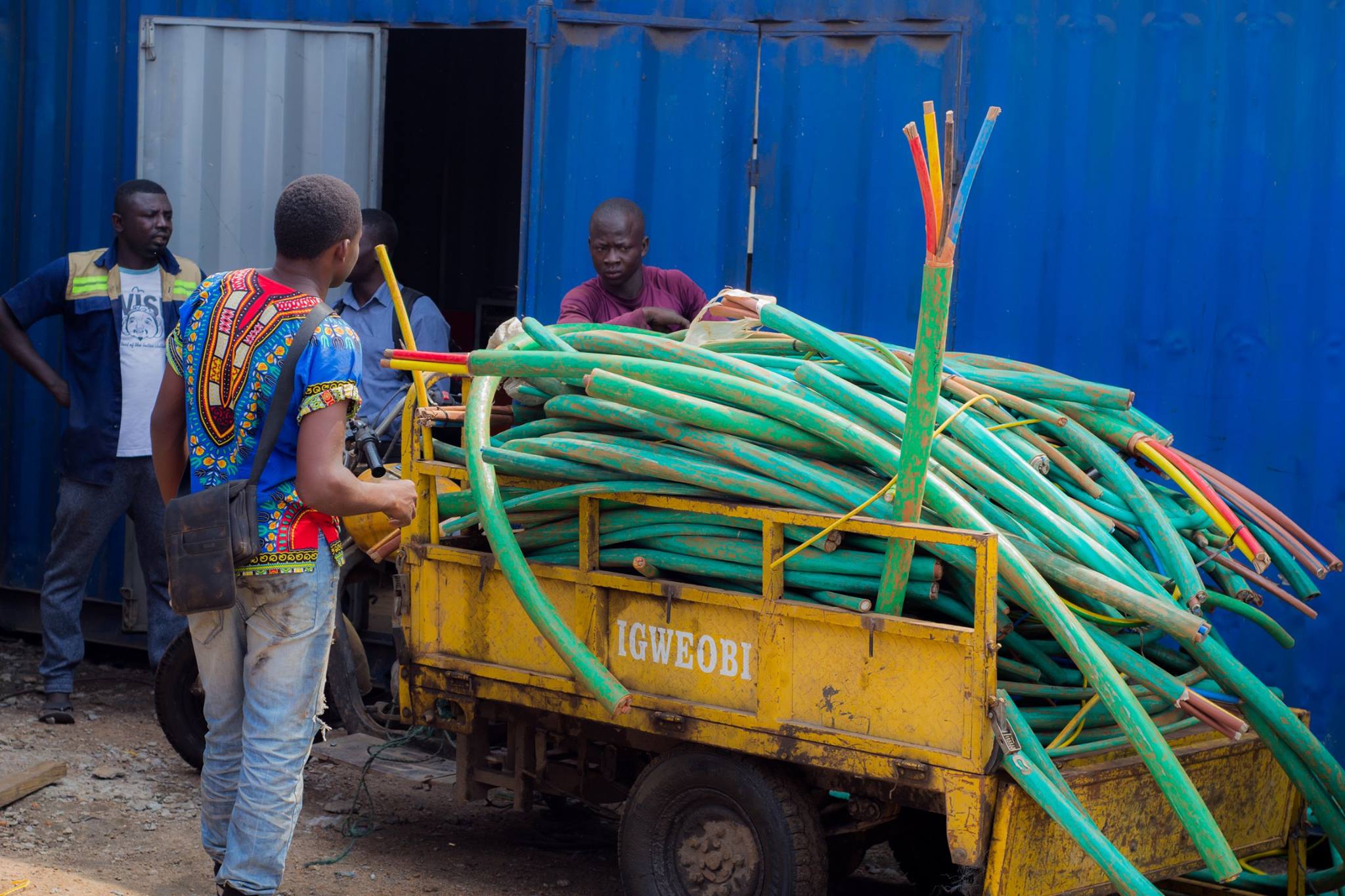
The center also has a granulator and separator, which chops up wires ands separates the metal from the plastic coating.
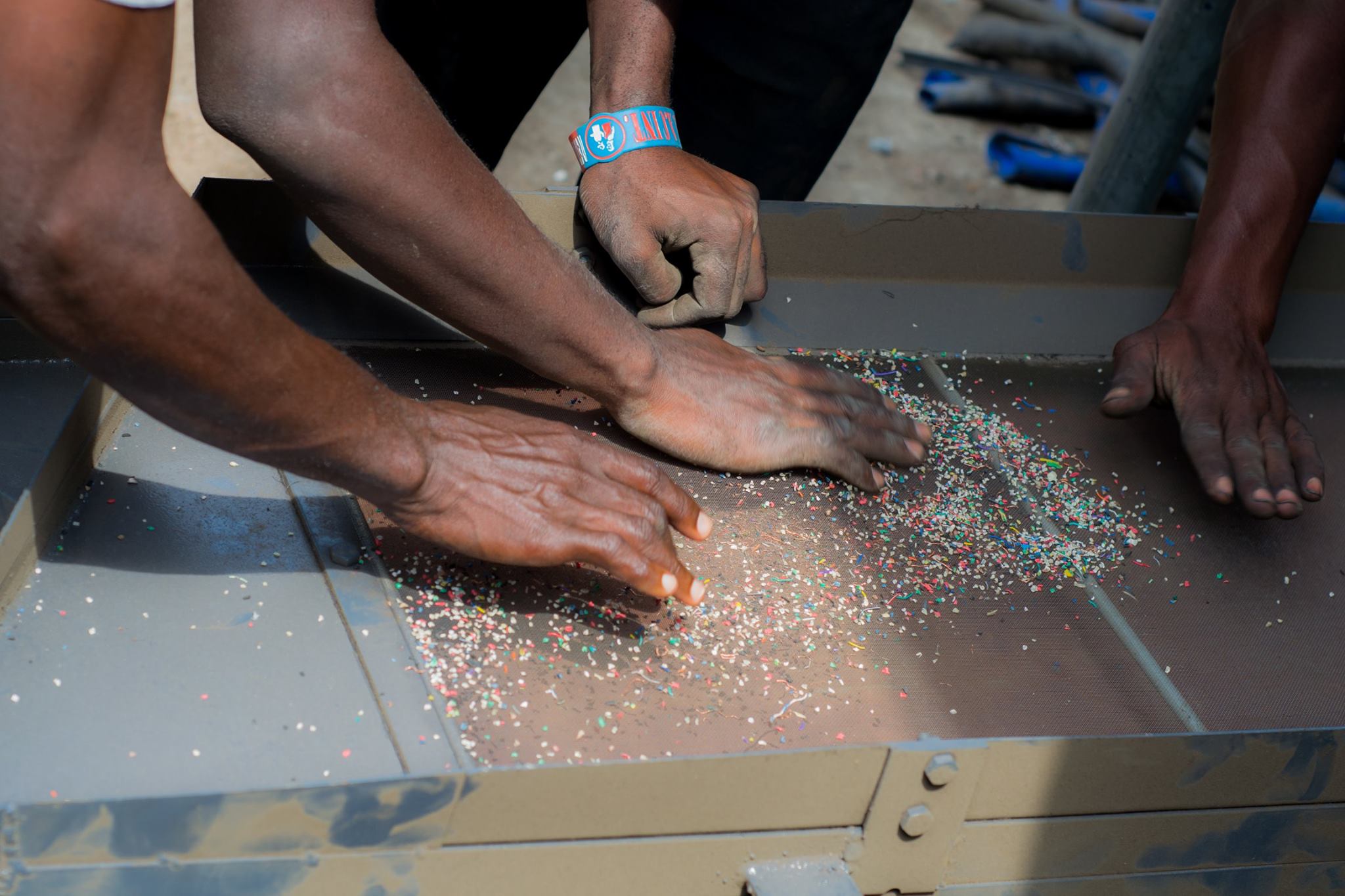
“Creating such friendly healthy environment and introducing this machine will not only positively affect our health, but will also create job opportunities for our members because the wires instead of coming out burnt will now be new hence fetching us good market price,” Abdullai Abdul-Rahman (pictured below), chairman of GASDA, told the Ghana News Agency.
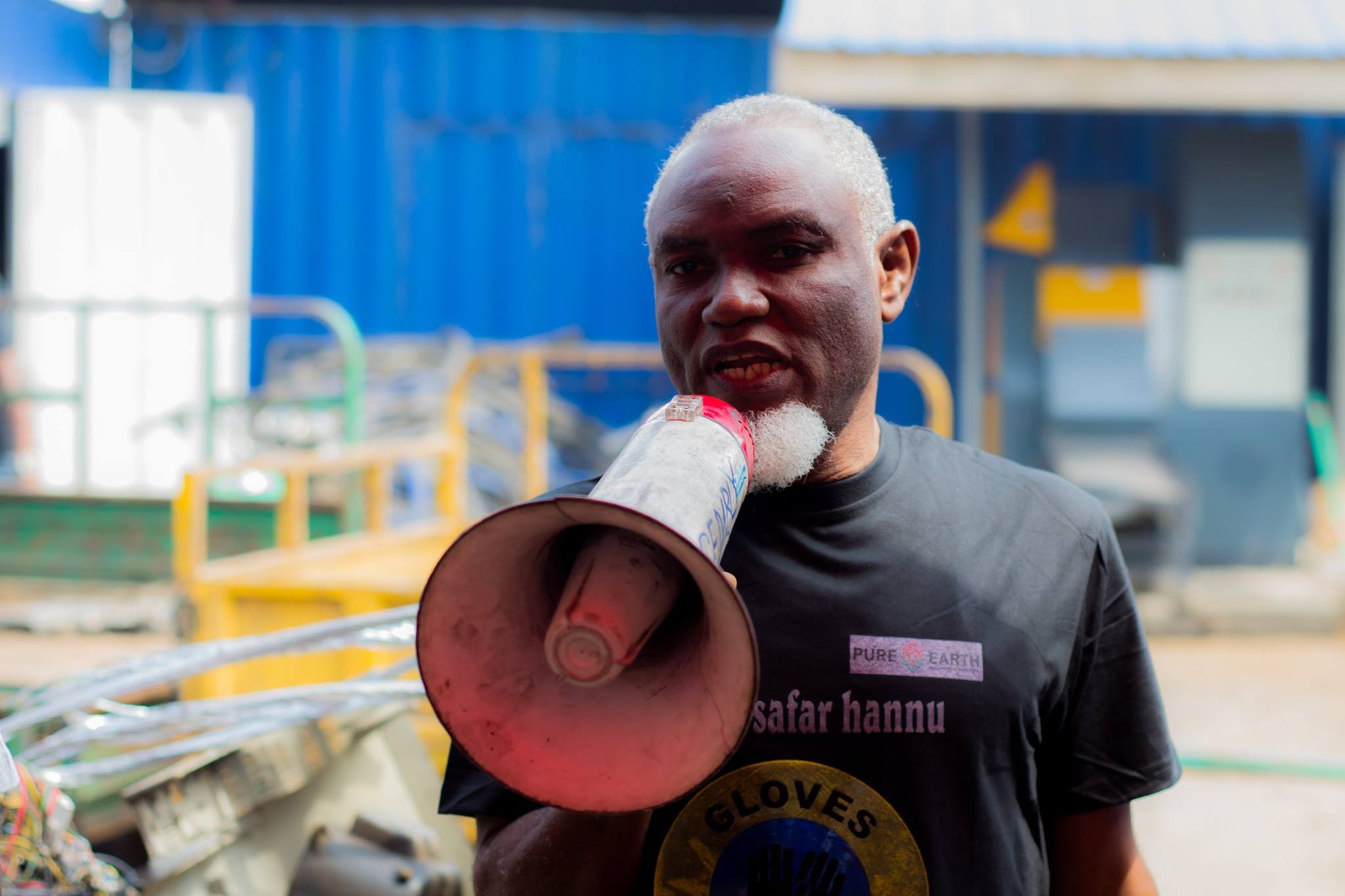
Outside the e-waste recycling center, Bennett Akuffo from GreenAd spoke to the crowd about e-waste recycling health and safety, going through a list of e-waste items recyclers might come into contact with, explaining the toxins they contain.
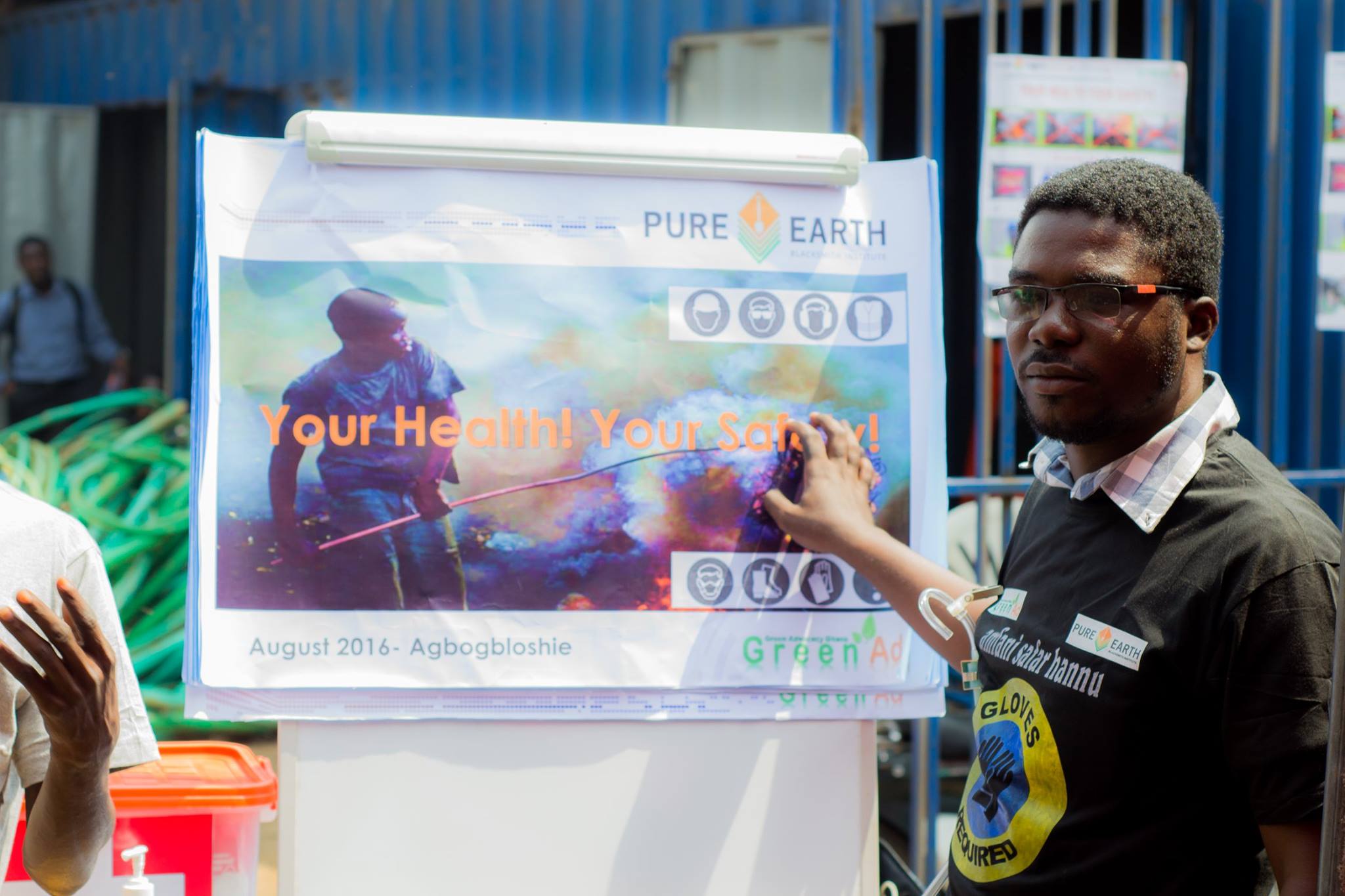
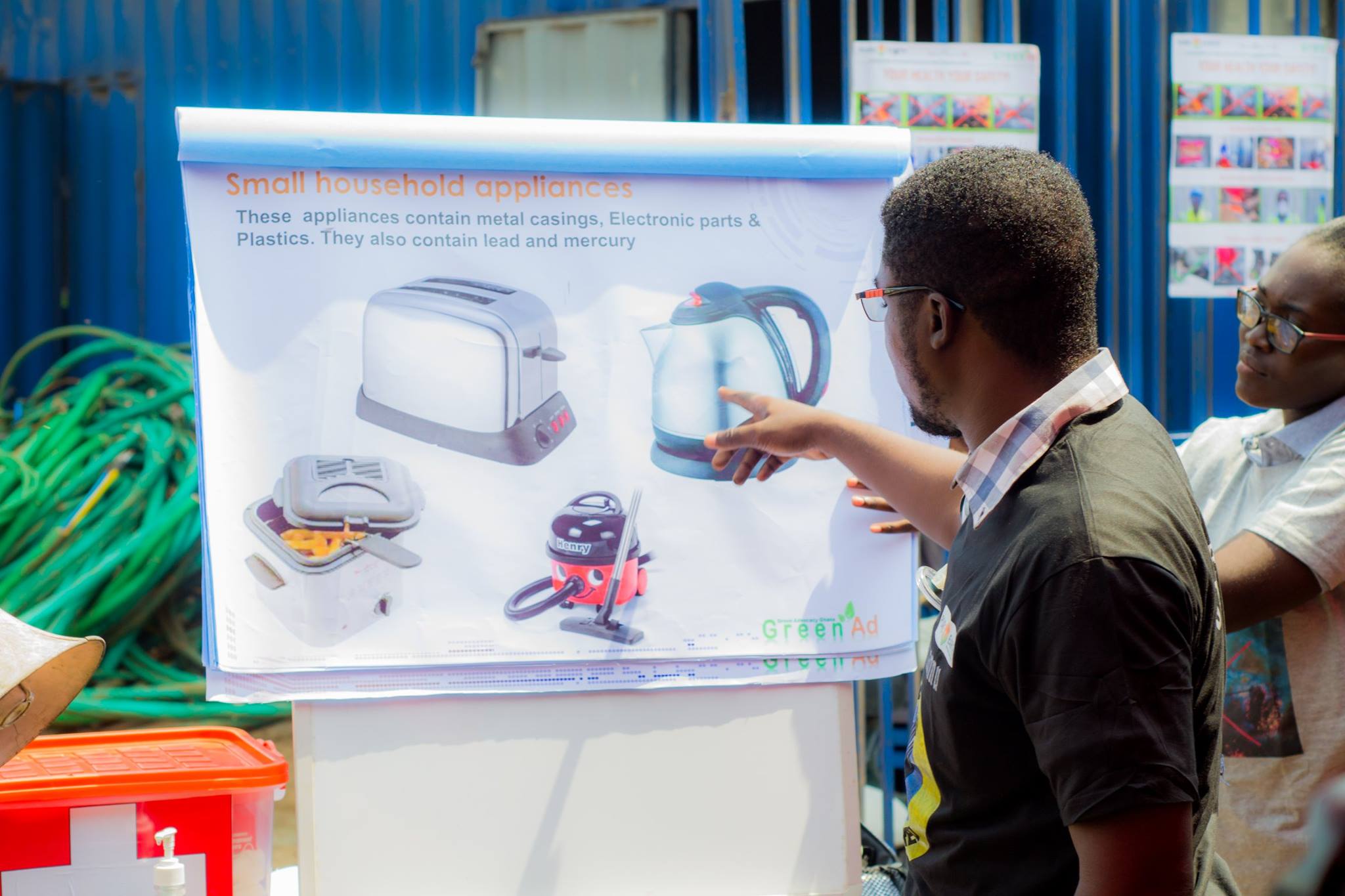
He also stressed the need for proper hand washing and the use of personal protection equipment.
Donated gloves and masks were then given away to the crowd, and a first aid kit was installed at the recycling center.
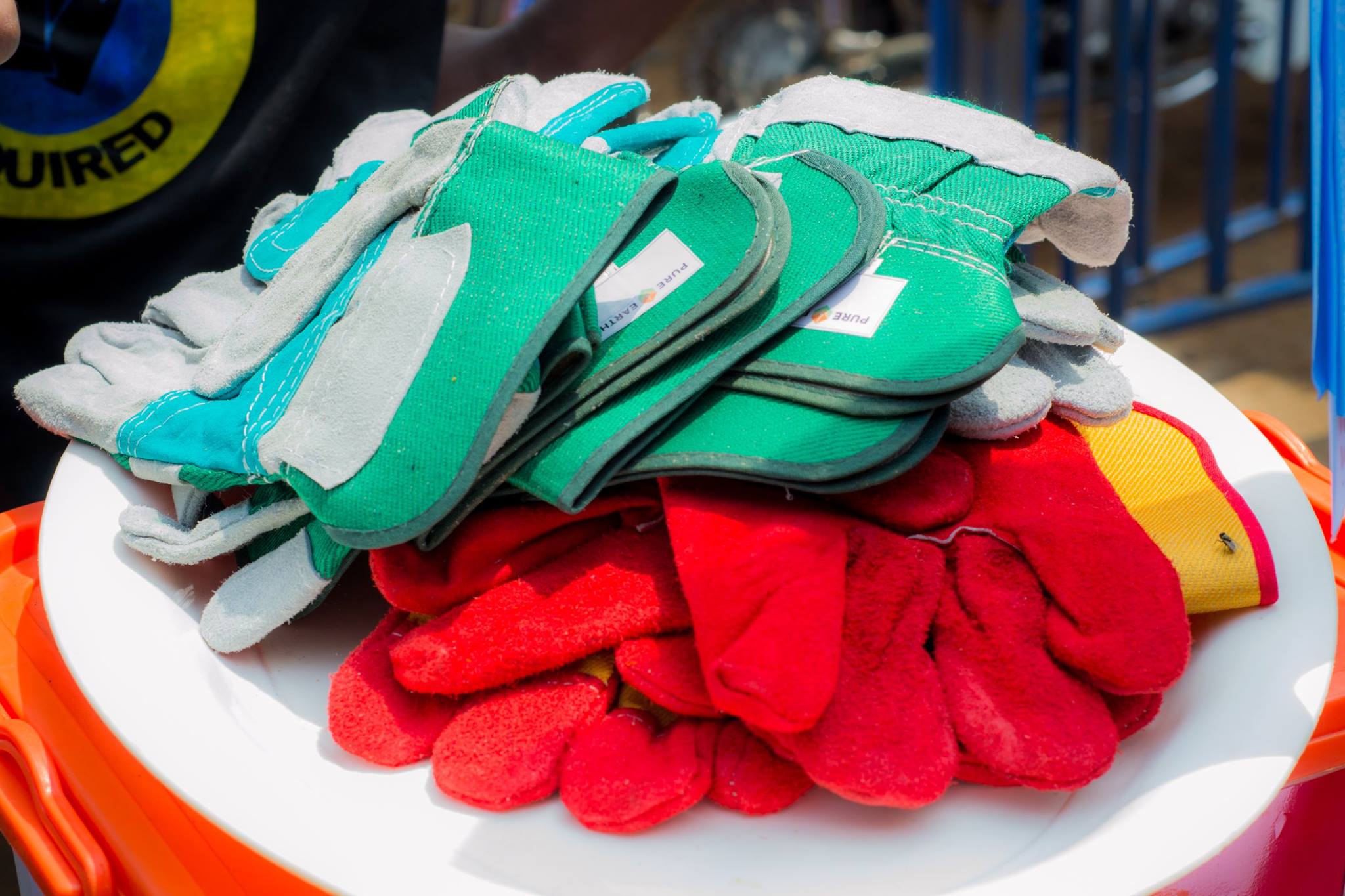
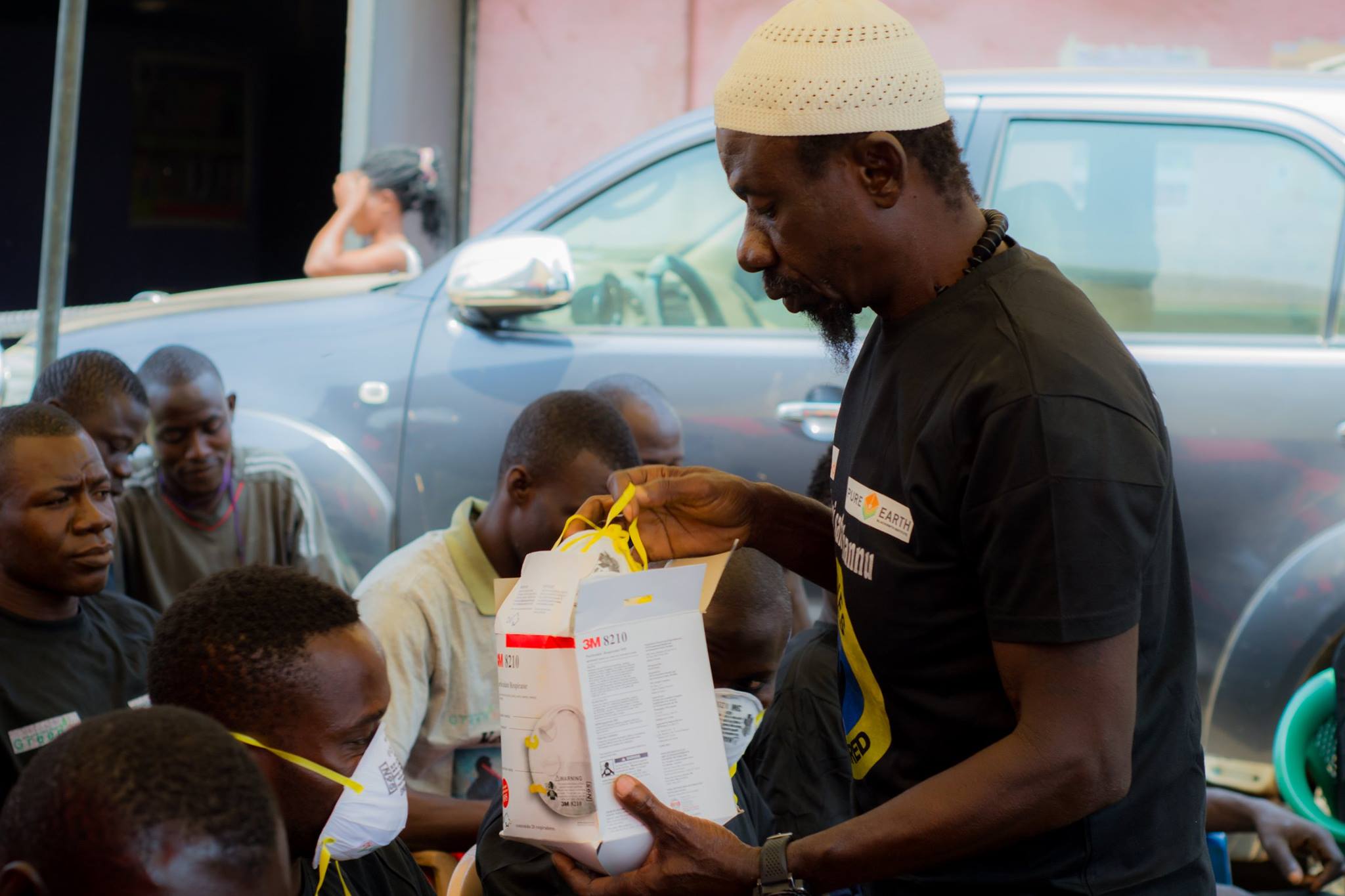
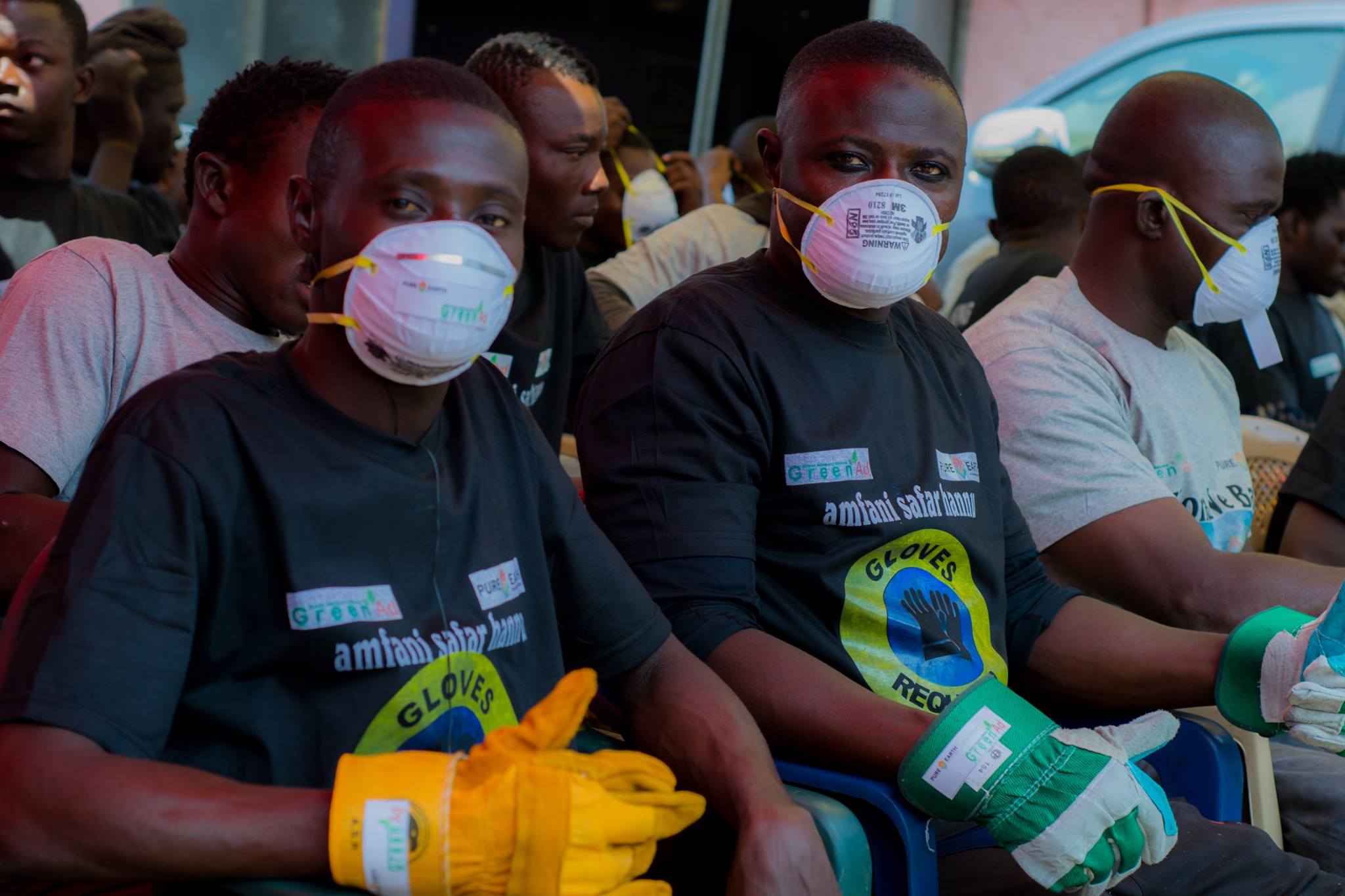
‘The adverse effect of breathing in polluted oxygen especially one generated from plastic affects the one burning as well as the one inhaling because we all take in air for survival,’ Yaw Amoyaw-Osei (pictured below), Executive Director of GreenAd, told the Ghana News Agency.
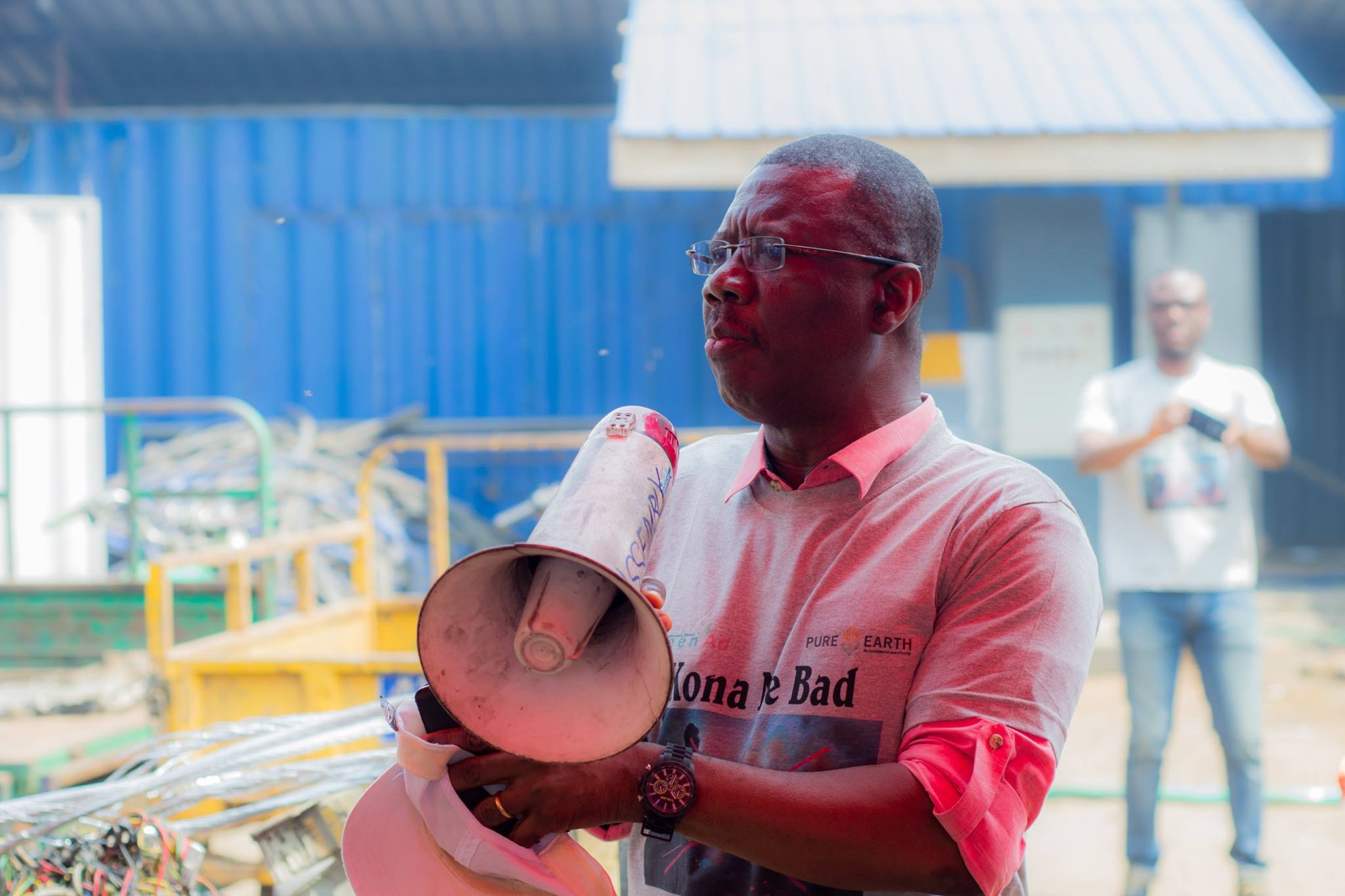
Our team in Agbogbloshie continues to manage and run the recycling center, and we are measuring the changes resulting from this pilot. To date, we are seeing a steady increase in the amount of e-waste brought to the center for processing. As the recyclers become more familiar with this new way of working, we expect to see less pollution and a reduction of health threats in Agbogbloshie.
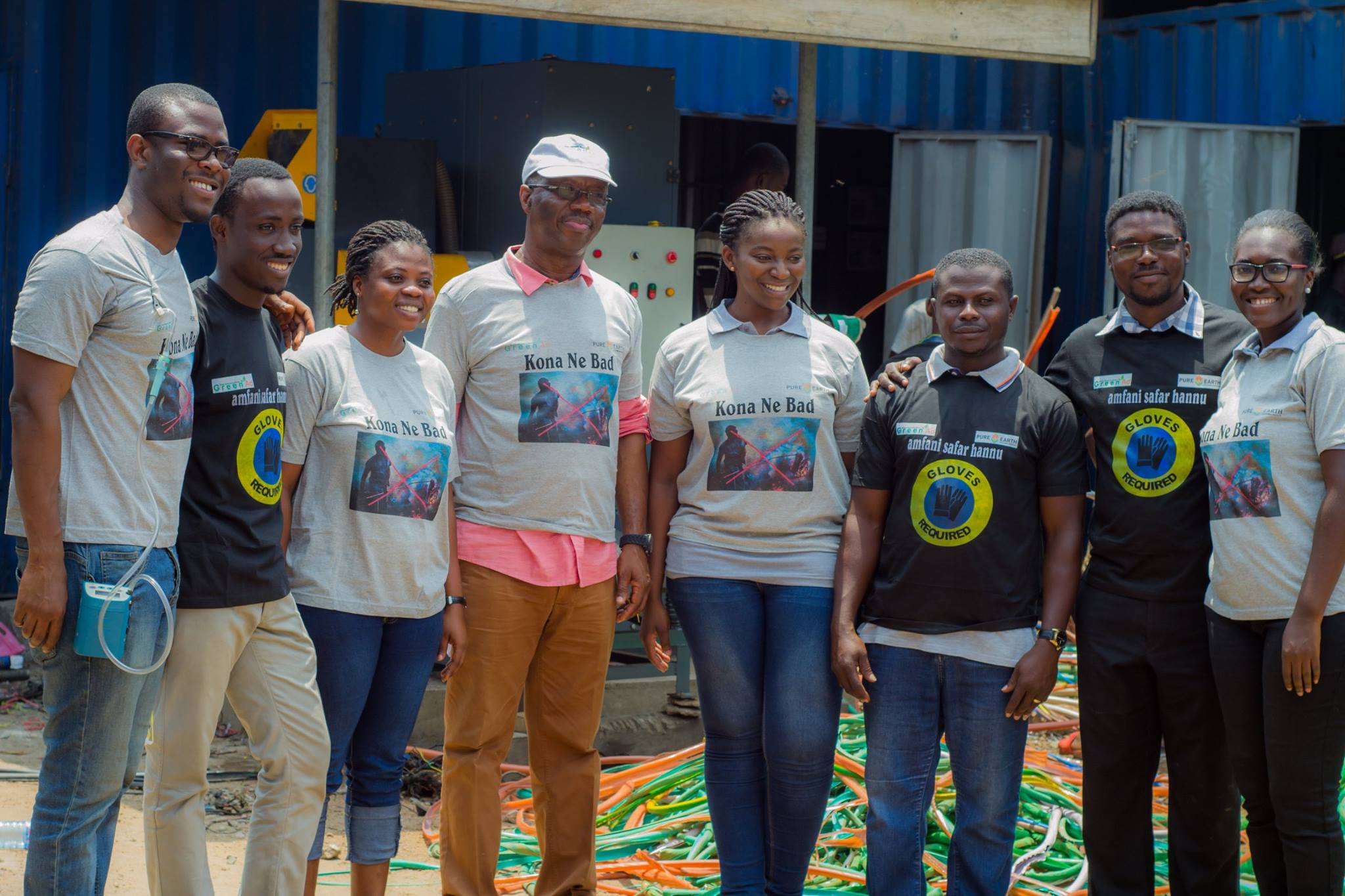
Related:
- Transforming Agbogbloshie: From Toxic E-Waste Dump Into Model Recycling Center (PHOTOS)
- Ghana’s Tech Dump:The Untold Story (Magnum Photos)
Watch:





